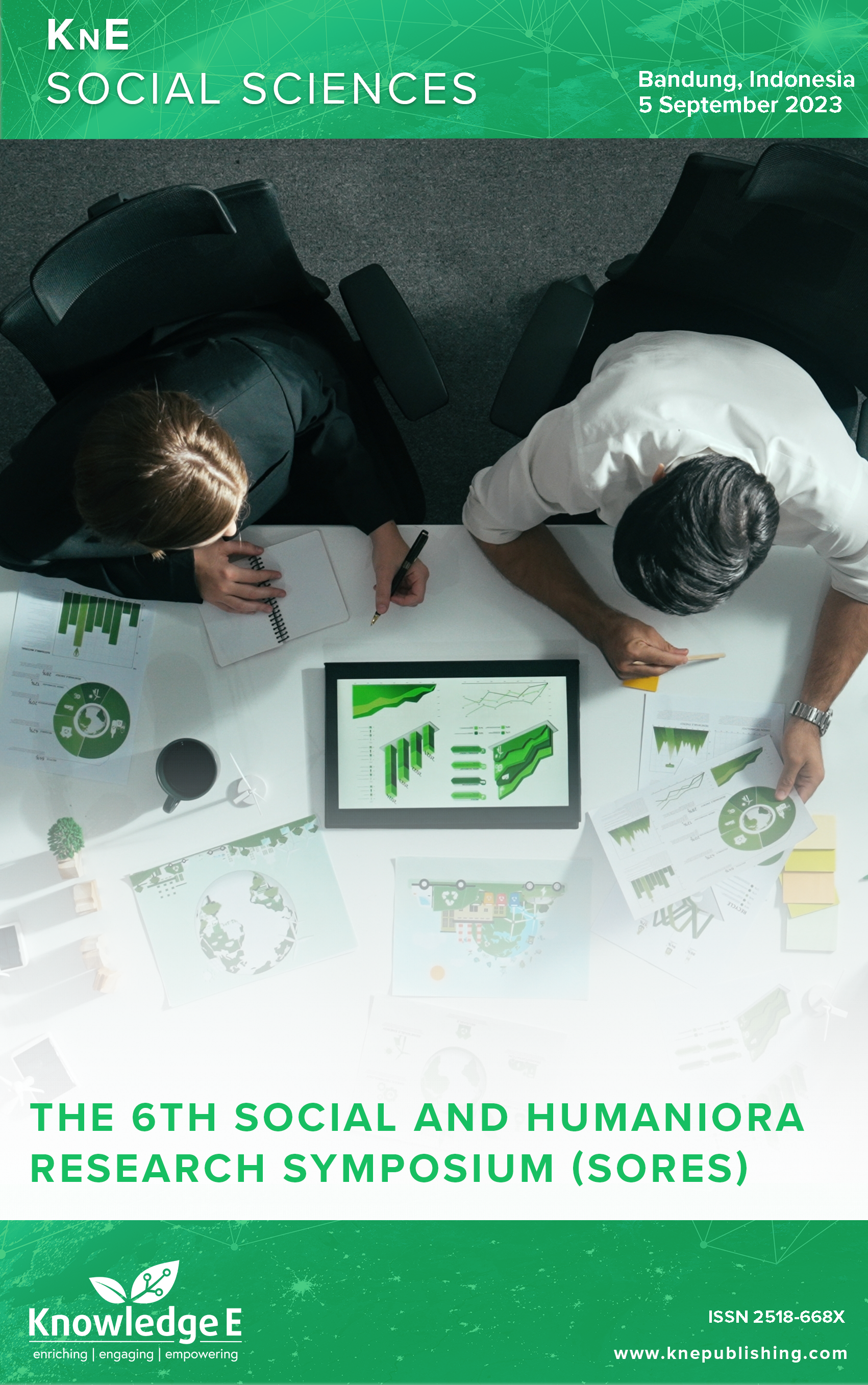Revealing Indonesian Identity in National and State Life: Putri Petong Folklore
DOI:
https://doi.org/10.18502/kss.v9i24.16908Abstract
According to RI Law Number 3 of 2022, the Republic of Indonesia's Capital City will be in East Kalimantan, which covers the areas of Sepaku District, North Penajam Paser Regency, and Kutai Kartanegara Regency. This study study must bewas conducted with the aim to conserve the indigenous ethnic knowledge values of the IKN people, which are potentially threatened withon the verge of extinction, and to enhance Indonesian identity, which supports the development of the IKN in the life of the nation and state. This shift must be anticipated to protect indigenous ethnic' local wisdom values in the region. The character values included in the folklore "Putri Petong" is the focus of this investigation. This researchThe study aims to describe the story's Indonesian identity (character values). The research problem is as follows: what What are the values of character education in Putri Petong's story, and how are these character values implemented in the nation's life based on Putri Petong's story? It is a descriptive qualitative study. The discourse analysis theory of Van Dijk is utilized to analyze Indonesian identity, which is expressed in the content of character values. In character education, published by the Ministry of Education in 2011, Indonesian identity consists of 18 characters. The findings demonstrate that religious character, discipline, hard labor, democracy, love of for the motherland, communicative/friendly, peace-loving, social concern, and responsibility reflect the Indonesian identity of life as a nation. Putri Petong, the main character in this folklore, manages, develops, and protects her kingdom with the strength of her character as a statesman who upholds democracy, loves the country, and accepts responsibility, which is subsequently replicated by her subordinates.
Keywords: Indonesian identity, character education, folklore, East Kalimantan, Capital of the Archipelago
References
[2] Wibowo A. Pendidikan Karakter: Strategi membangun karakterbangsa berperadaban. Yogyakarta: Pustaka Pelajar; 2012.
[3] Sanah EA. Elly Zati Nur Alfi; Oemar. Analisis Semiotika Nilai Pendidikan Karakter Tokoh Nussa dan Rara pada Film Animasi Nussa Season Dua. Jurnal Seni Rupa. 2021;9(2):287–98.
[4] B. P. dan P. P. K. dan P. Kementerian Pendidikan Nasional, Panduan Pelaksanaan Pendidikan Karakter. Jakarta, 2011.
[5] Firnaherera VA, Lazuardi A. Pembangunan ibu kota nusantara: Antisipasi persoalan pertanahan masyarakat hukum adat. Jurnal Studi Kebijakan Publik. 2022;1(1):71–84.
[6] Syahiddin A. Rahman, Misriani, A. D. Martyawati, A. Mustikawati, and D. R. Riana, Cerita rakyat Paser dan Berau. 1st ed. Samarinda: Kantor Bahasa Provinsi Kalimantan Timur; 2013.
[7] Dijk TA. Society, and discourse: How social contexts influence text and talk. Cambridge: Cambridge University Press; 2010.
[8] Ettin MF. Rousseau’s social contract and the functional integrity of the group-as-a-whole. Group Anal. 1997;30(1):49–63.
[9] Deutsch KW. State functions and the future of the state. Int Polit Sci Rev. 1986;7(2):209–22.
[10] Sumbawati Y. Analisis Makna dan Fungsi Jampi Maen Jaran dalam Tradisi Masyarakat Sumbawa. Mataram: Undergraduate, Universitas Muhammadiyah Mataram; 2022.

